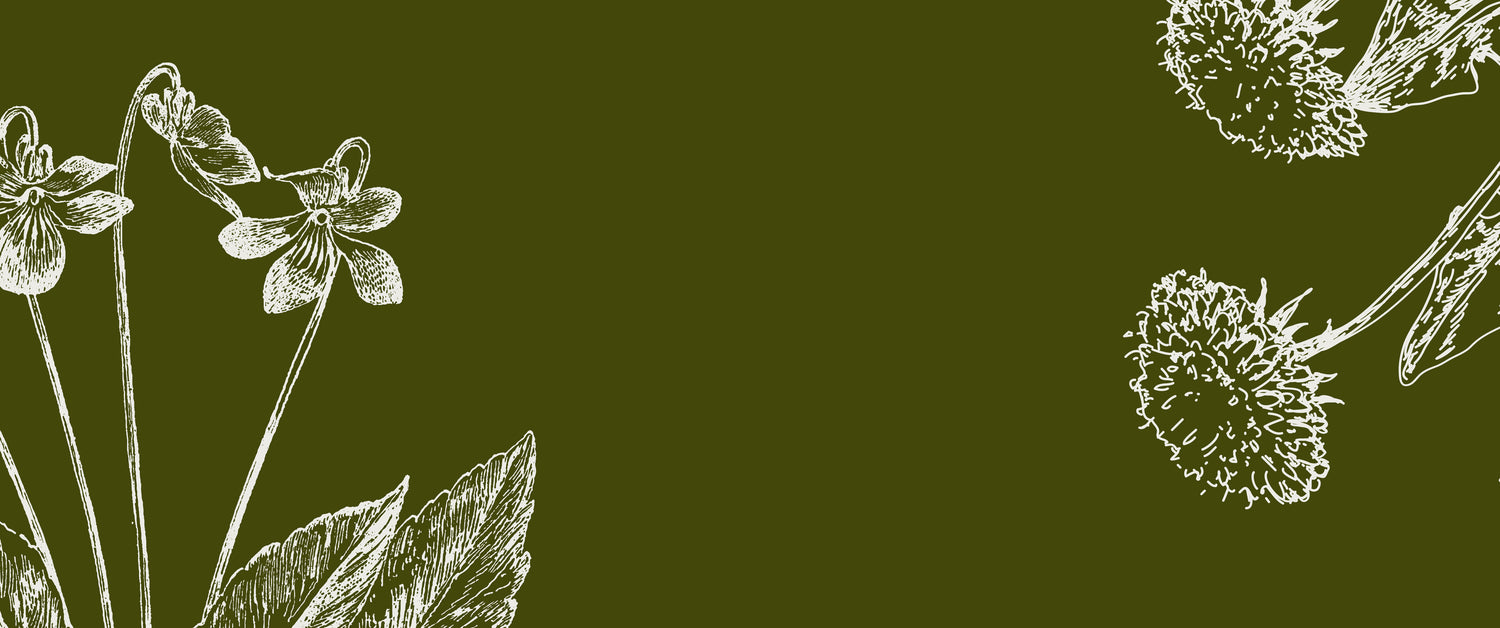It’s safe to say we’ve all had a night at some point in our lives where we tuck ourselves into bed, ready to drift off, and yet our brain is still moving at a million miles per hour. Or maybe you fall asleep fine but wake up at 3 am, calculating how little sleep you’re about to get before your alarm goes off for work.
Sleep can sometimes feel elusive, but it’s SUCH powerful medicine. High-quality rest is the foundation of hormone balance, blood sugar regulation, immune resilience, emotional well-being, and so much more. In Traditional Chinese Medicine (TCM), nighttime is when yin energy replenishes, the spirit (Shen) anchors, and the organs repair themselves. Modern science echoes this, confirming that sleep is when tissues heal, the brain detoxifies via the glymphatic system, and the nervous system recalibrates.
Fostering this sacred, natural reset button ultimately comes down to creating a ritual, or nightly rhythm that tells your body it’s safe to rest. We’ll walk you through everything from creating a sleep-friendly environment to supporting your circadian rhythm, nourishing your body with the right foods, and leaning on calming nightly rituals and herbal allies (like those found in Sleep Juice).
Sleep Juice is formulated to help you get the sleep you need. This calming herbal tinct...
Sleep Juice
The Physical Environment
Your bedroom should feel like the ultimate sanctuary. While it’s tempting to scroll or watch shows in bed (we do it too!), try your best to reserve the space for sleeping. Over time, this helps your brain associate your bed with rest, not stimulation. Light plays a HUGE role here. Even the smallest glow from a streetlamp, phone charger, or partner’s phone can suppress your melatonin production, which is the hormone that makes you sleepy. That’s why using blackout curtains or a silky eye mask can make all the difference in blocking out unwanted light. You can also swap out bright white light bulbs for softer ones, like red lights or salt lamps, to signal to your body that nighttime is approaching. In that same vein, wearing blue light-blocking glasses (especially when using devices) can help filter out any stimulating blue light that may trick your brain into thinking it’s daytime.

Room temperature is one of those controversial topics that everyone has an opinion on, but studies show that the sweet spot is between 65-70 degrees Fahrenheit. This is because your body naturally lowers its temperature to initiate sleep. A warm shower before bed has the same effect, as stepping out of the hot water mimics your body’s own temperature drop.
Resetting Your Circadian Rhythm
Consistency is everything when it comes to your circadian rhythm. Going to bed and waking up at the same time every day (yes, even on weekends) helps your internal clock stay regulated. If you’ve ever gone camping, you’ve probably noticed you get sleepy pretty soon after sunset (which never happens back at home). That’s your circadian rhythm in action! Without blue light or artificial lights to keep you up, your body naturally releases more melatonin and less cortisol as it gets darker, signaling that it’s time to sleep. To further solidify these rhythms:
-
Get morning sun in your eyes within 30 minutes of waking up. It can totally be through a window if you can’t get outside!
-
Dim the lights as the sun sets, and stop using overhead lights
-
Use candles, red light bulbs, or salt lamps instead
Nutrition for Sleep
When you eat is just as important as what you eat. If you find yourself waking up in the middle of the night, low blood sugar could be the culprit. To avoid crashes, pair carbs with protein and fat at dinner or enjoy a little pre-bed snack that has carbs, fat, and protein in it. Something like apple slices with nut butter, some cheese and crackers, or Greek yogurt with berries and seeds. If you prefer something warm and comforting, a golden milk latte with ghee can be deeply nourishing before bed. And, lastly, cut yourself off from caffeine by lunch time!
Another nighttime fave is a mineral-rich sleepygirl mocktail. with tart cherry juice (a natural source of melatonin), magnesium powder, and sparkling water. This simple combo helps regulate blood sugar, relax your muscles and nerves, and gently supports your body’s own sleep-wake cycles.
Wind-Down Rituals
Just as small kids enjoy the comfort of baths, story time, and warm milk before bed, we adults need a cozy ritual too. Think of it as powering down your nervous system for the night, which could look like:
-
Breathing in the 4-7-8 pattern (inhaling for 4, holding for 7, and exhaling for 8) to activate your vagus nerve, lower your heart rate, and shift your nervous system into parasympathetic mode (aka rest and digest).
-
Journaling out any racing thoughts, pressing to-do lists, or emotional clutter onto paper. Once it’s written down, your brain doesn’t have to keep replaying it!
-
Putting your legs up the wall for 10+ minutes is a calming, restorative pose to drain out tension and support circulation.
-
Sipping on a warm cup of tea with nervine herbs from the list below, choosing what speaks to you and your unique constitution.
Herbal Allies
Plants have long been used to support restful sleep, and each herb brings its own personality and actions.
A calming blend of herbs designed to promote relaxation and support deep, restful sleep.* STAR HERB: Passionflower
Sleep Juice
-
Passionflower: quiets looping thoughts
-
Valerian: a gentle sedative herb that helps you fall asleep faster
-
Chamomile: the OG bedtime tea that soothes digestion and the nervous system
-
Lemon balm: lifts mood while soothing anxious energy
-
Scullcap: relaxes physical tension
-
Hops: encourages sleepiness
-
California poppy: helps you stay asleep through the night
These herbs can be blended into a tea or taken as a tincture. Sleep Juice is our favorite sleep formula as it combines many of these allies into one easy-to-use tincture you can drop into your nightly tea or warm water. Instead of knocking you out and leaving you groggy in the morning, it gently settles your nervous system, supports deep relaxation, and allows you to sleep soundly.
















